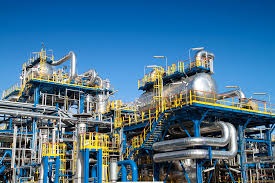Setting up a fuel ethanol production facility is a great way to dive into the green energy and biofuel scene! Ethanol is a renewable fuel that’s made from plants, and it’s often blended with gasoline to cut down on pollution and reduce our reliance on fossil fuels.

1. Raw Materials:
- Corn, Sugarcane, or Grains: These are the main feedstocks for fuel ethanol, depending on where you’re located.
- Cellulosic Biomass: Using plant waste like corn stalks, wood chips, or even grasses is becoming more popular—it’s sustainable and makes the whole process more eco-friendly.
2. Production Process:
- Fermentation: This is where sugars in the raw materials are turned into alcohol by yeast—basically the same process used for making beer or spirits but on a huge scale.
- Distillation: Once fermentation is done, the alcohol is separated from water and other stuff through distillation to get pure ethanol.
- Dehydration: For fuel ethanol, you need to get rid of all water to make it around 99% pure, so it can be blended with gasoline.
3. Energy Efficiency:
- Running a facility like this efficiently means using less water and energy, which helps lower costs and makes the process more sustainable.
- A lot of modern plants reuse waste heat from distillation and even use byproducts for biofuels like biogas, which can help power the plant itself!
4. Environmental Impact:
- Fuel ethanol is a major player in the biofuel world because it’s renewable and cleaner than pure gasoline. When blended with gasoline (like E10 or E85), it helps reduce greenhouse gas emissions.
- Plus, using green energy sources, like wind or solar, to power the plant makes it even more environmentally friendly.
5. Byproducts:
- Apart from ethanol, your plant can produce valuable byproducts like distillers grains (used for animal feed) and carbon dioxide, which can be captured for industrial use.
6. Applications:
- The ethanol you produce will likely be blended with gasoline for vehicles, helping meet biofuel mandates and pushing the shift toward green energy in transportation.
Building a fuel ethanol facility is a great way to tap into the growing demand for biofuels and contribute to the green energy transition. The setup can be highly efficient and eco-friendly, especially if you’re smart about using energy and managing waste.
